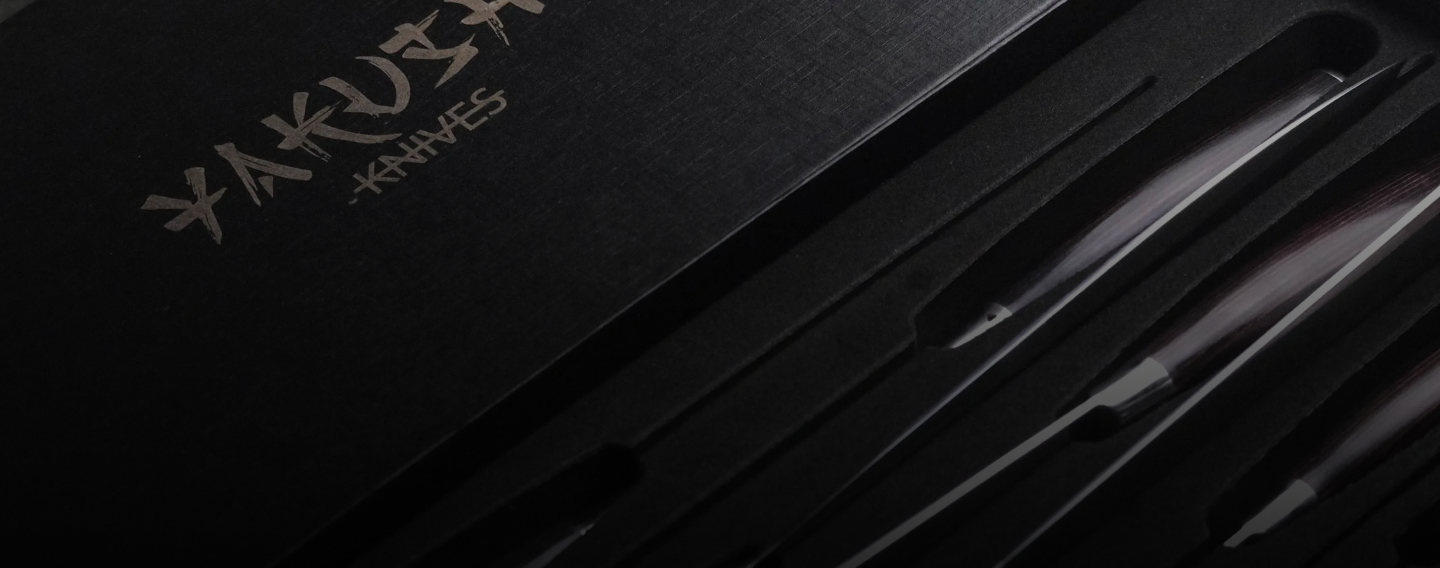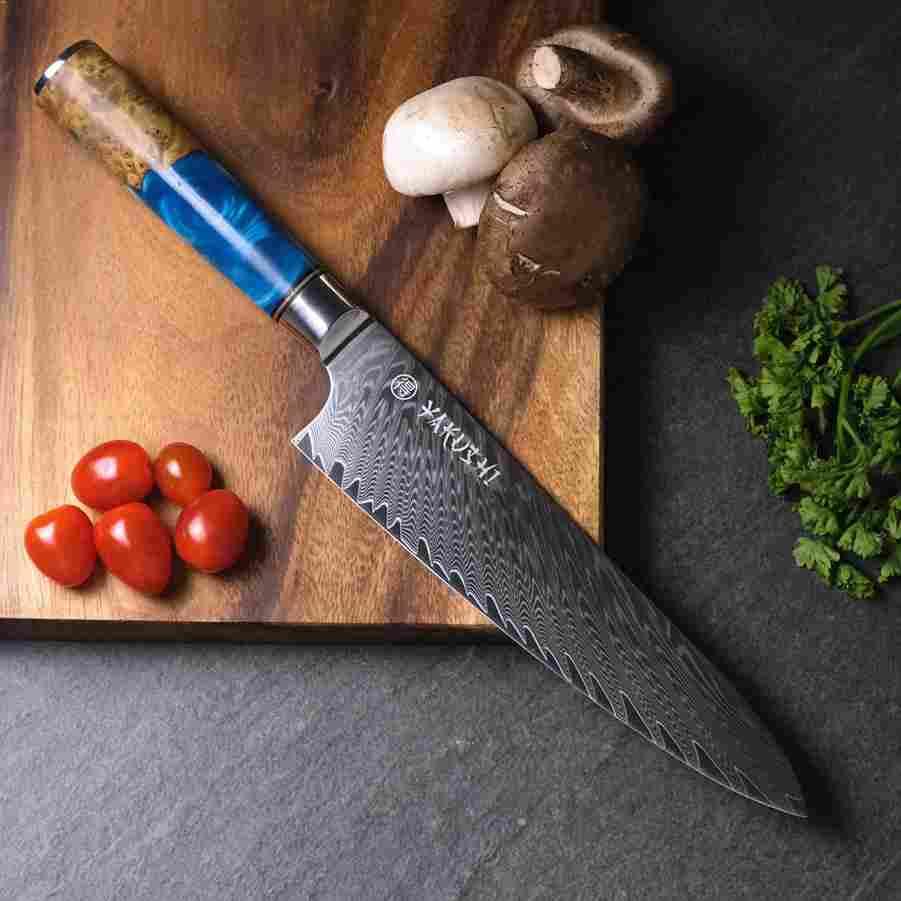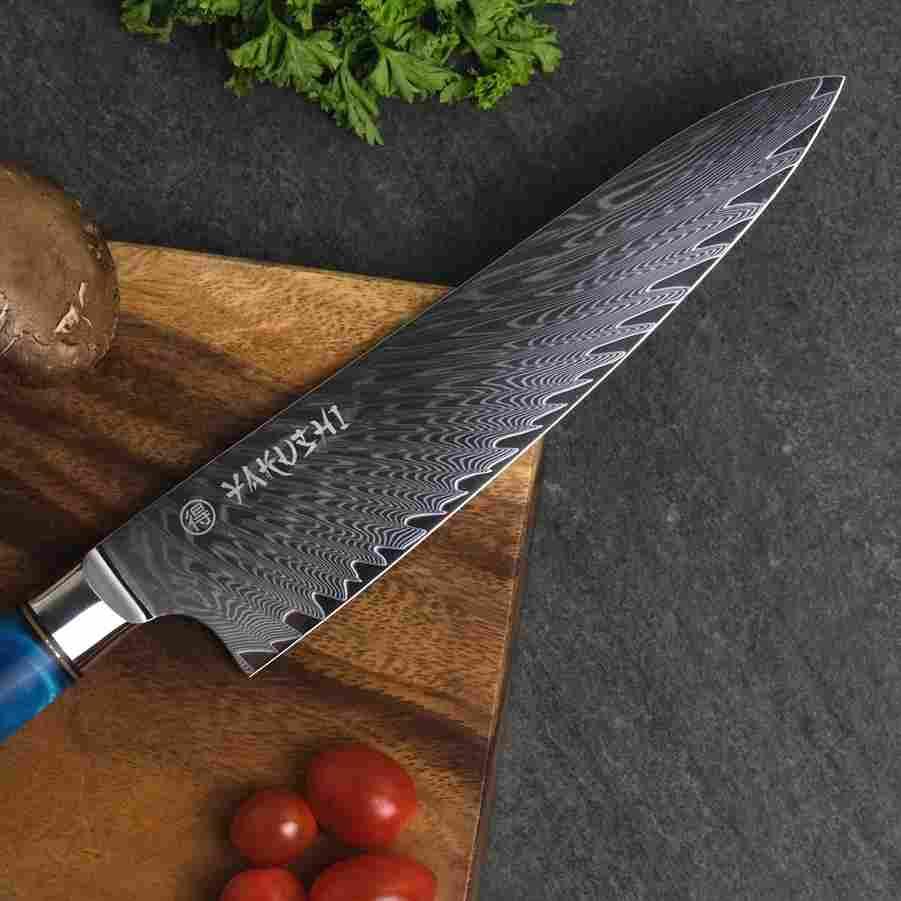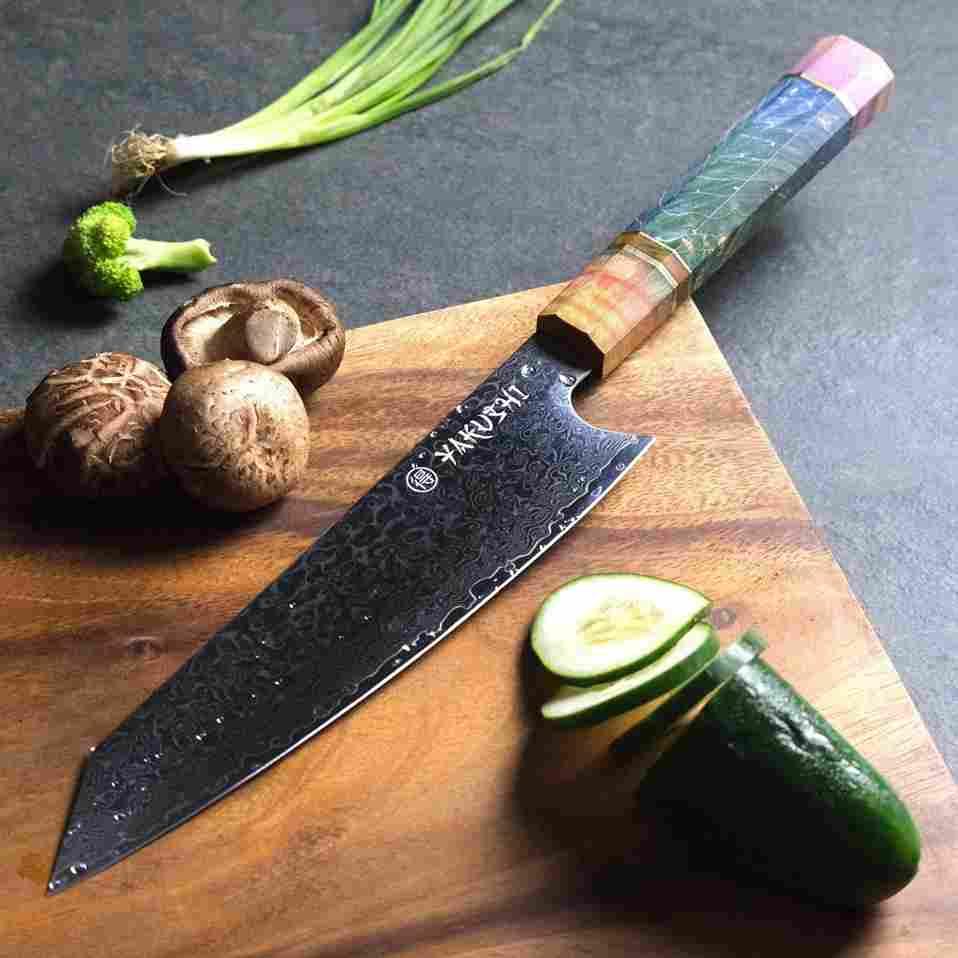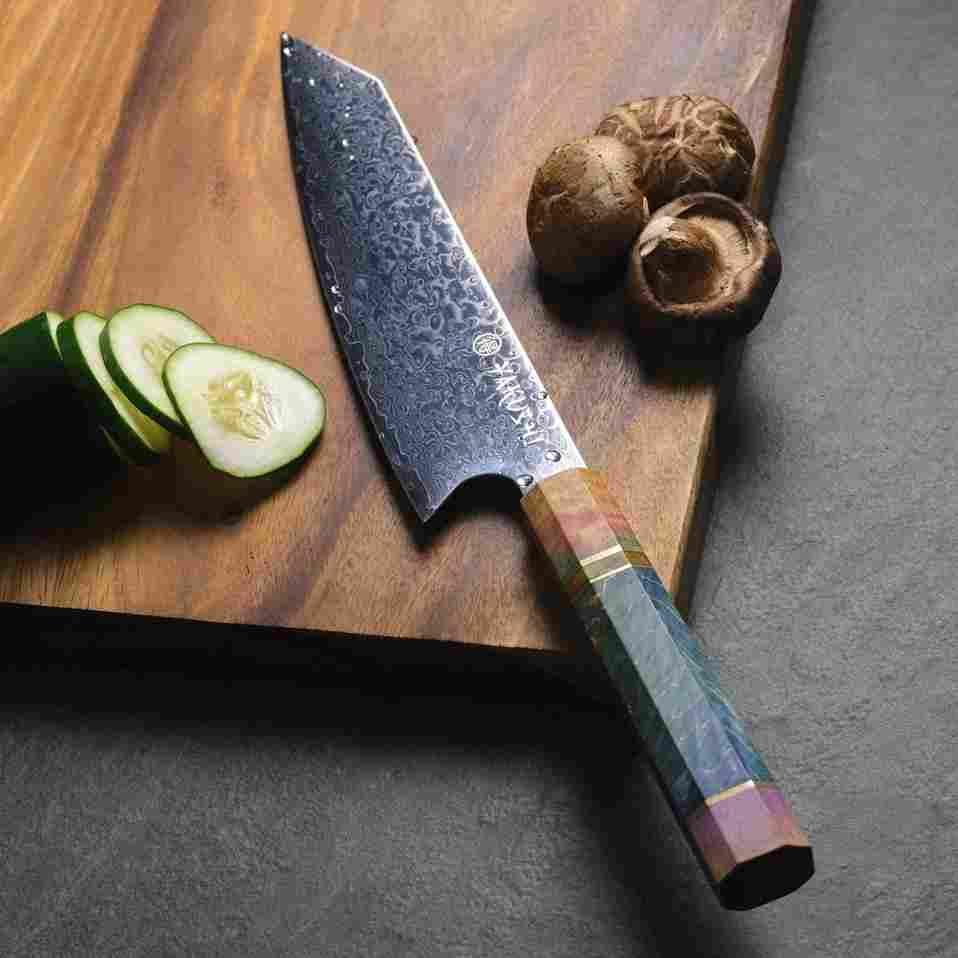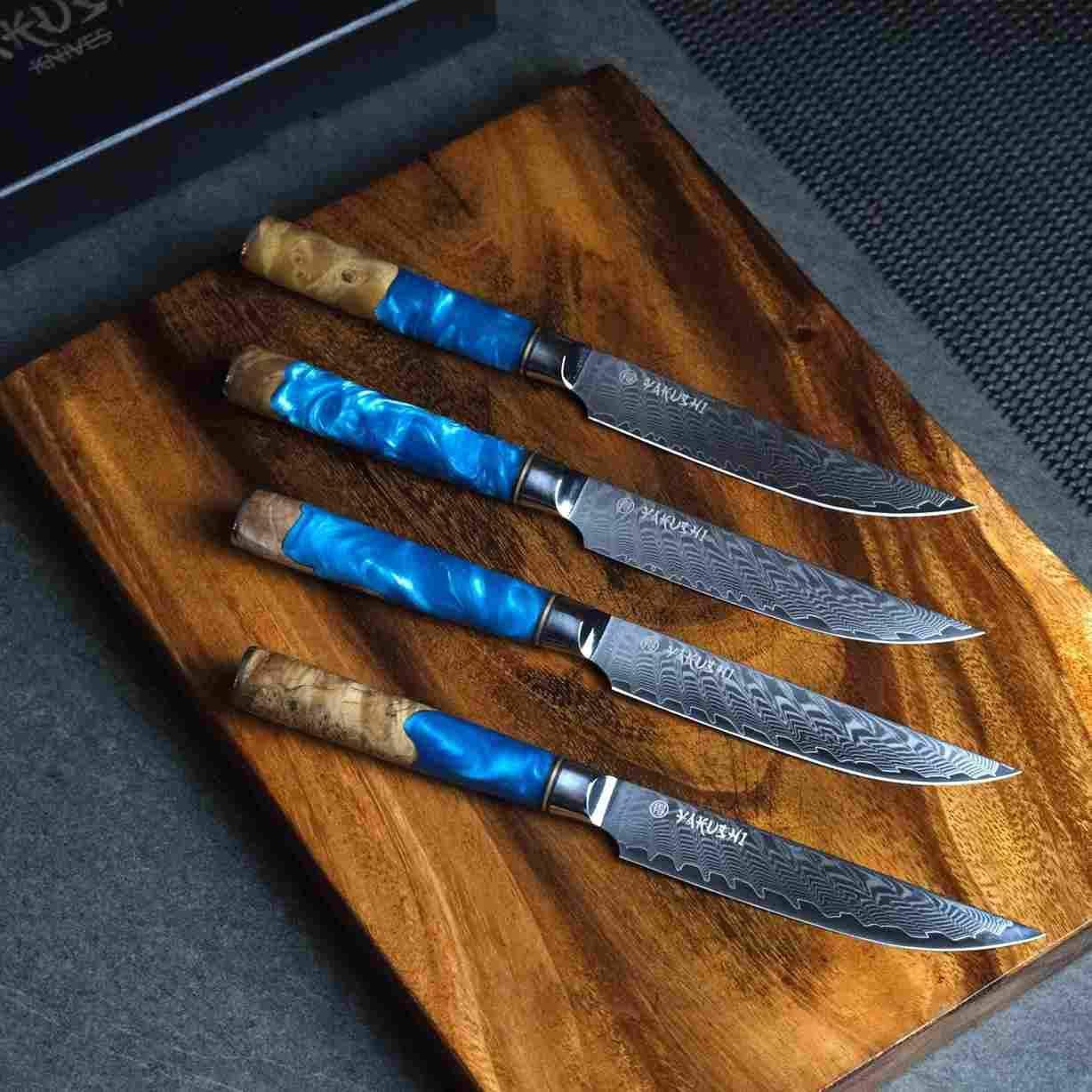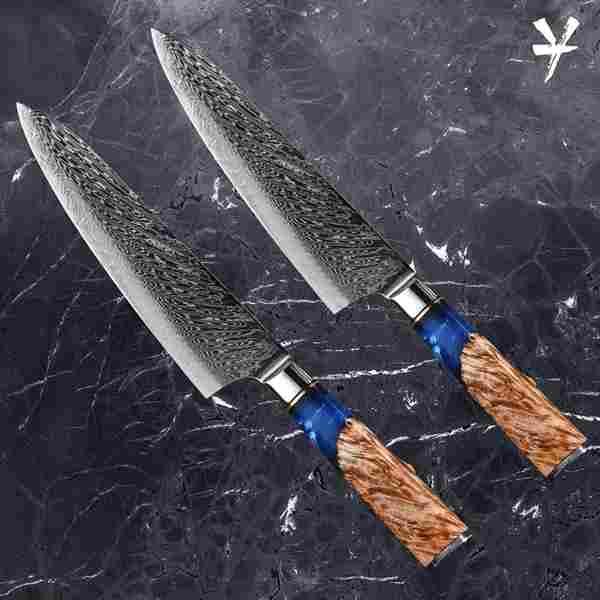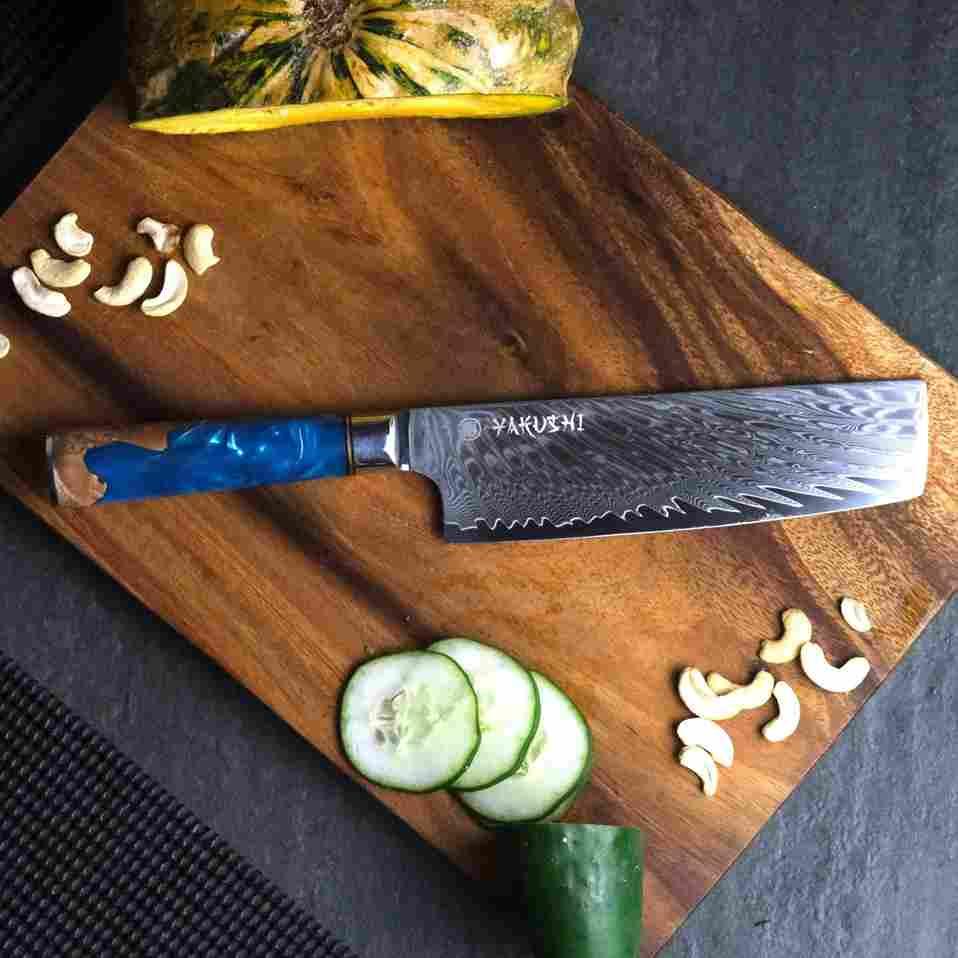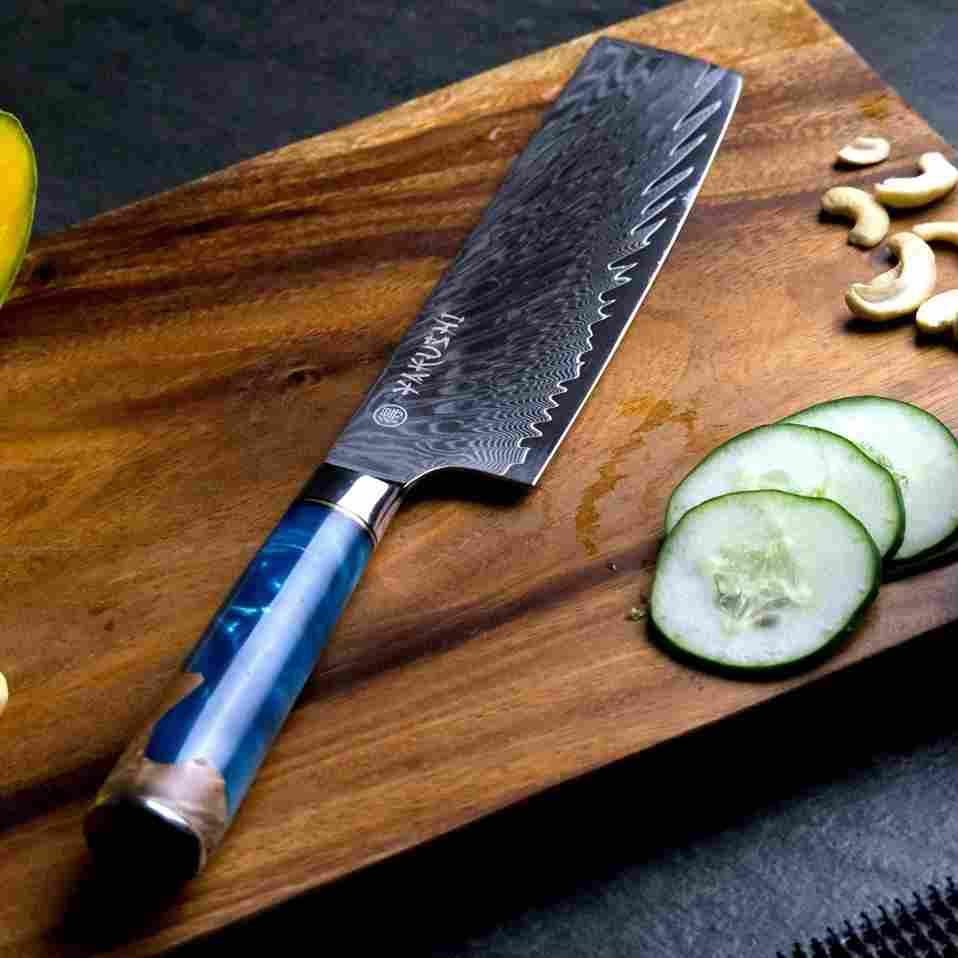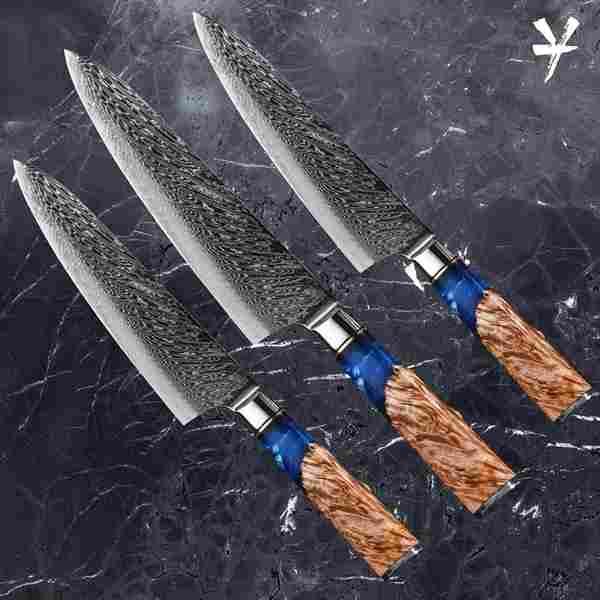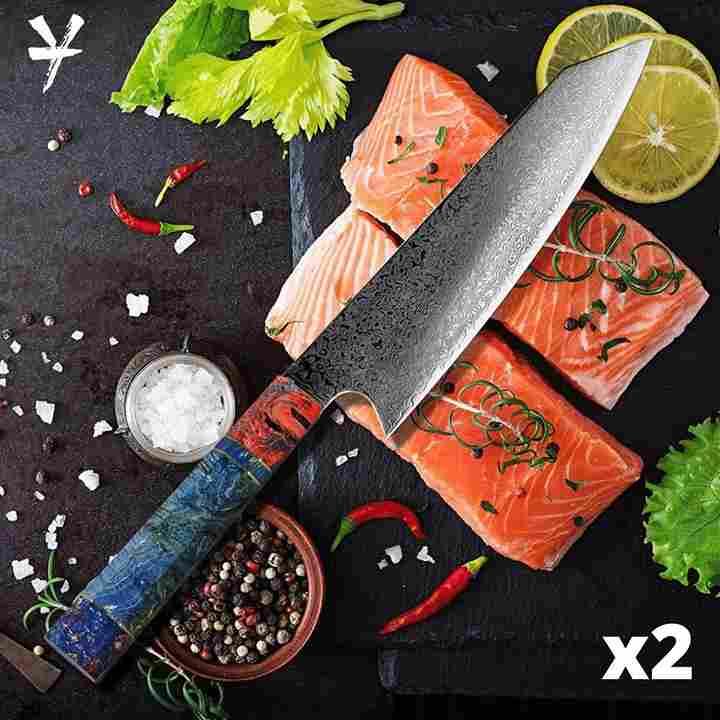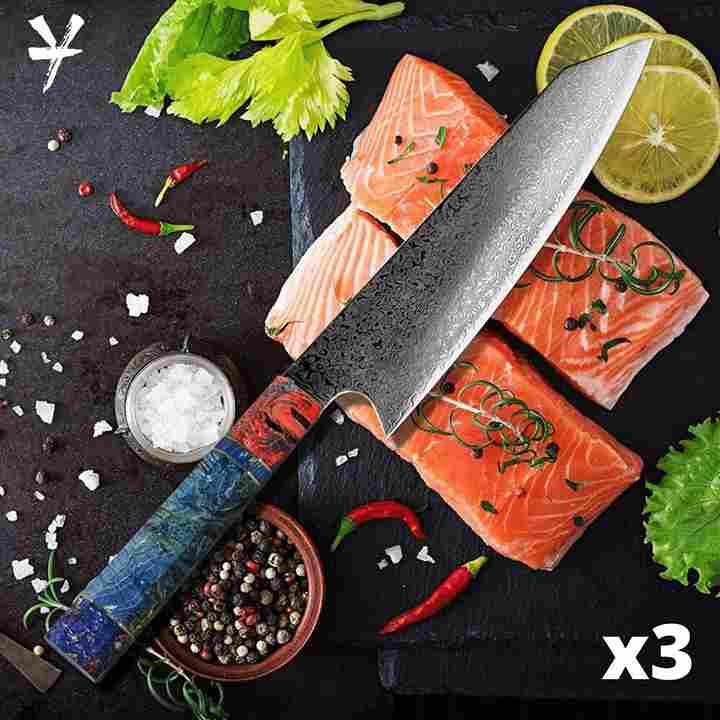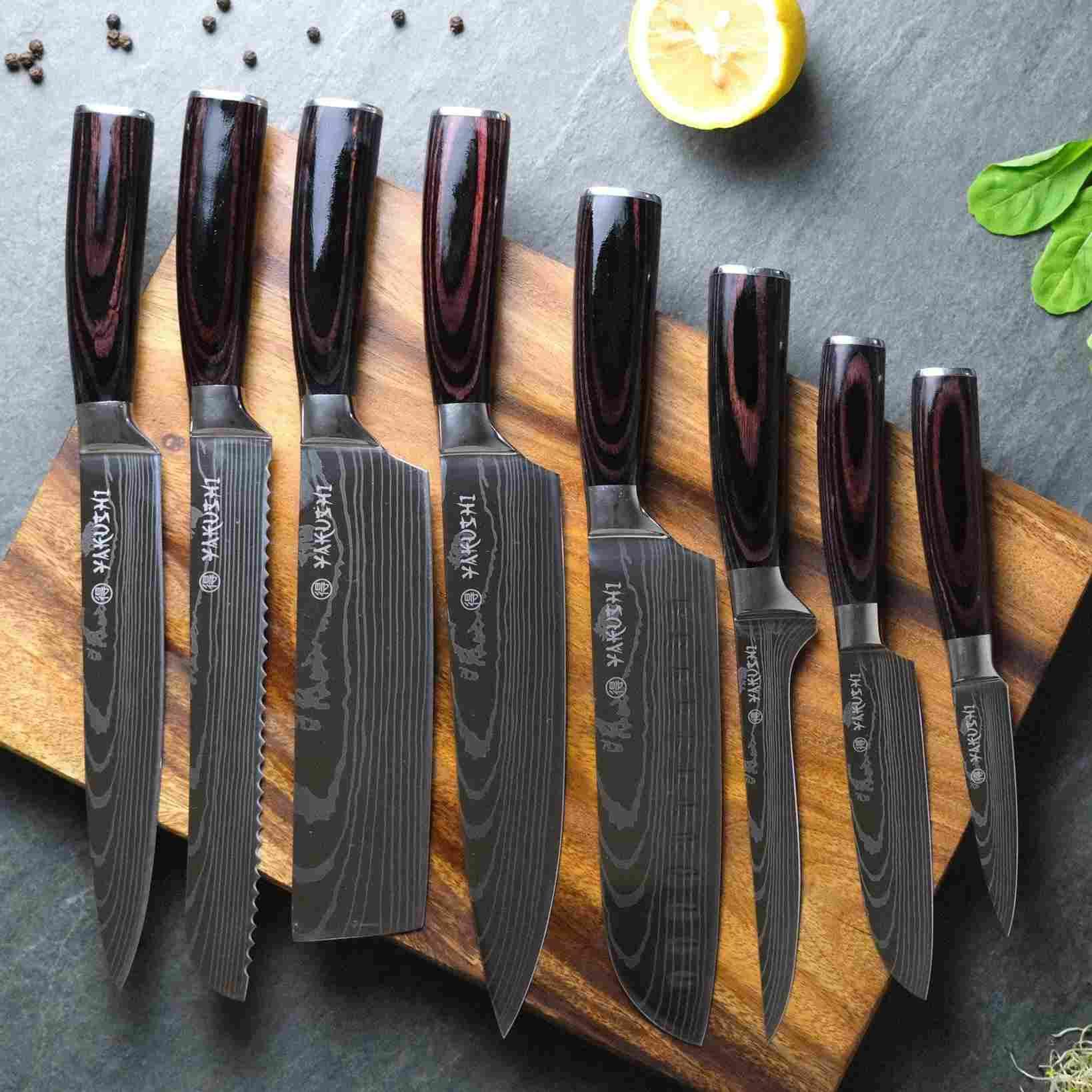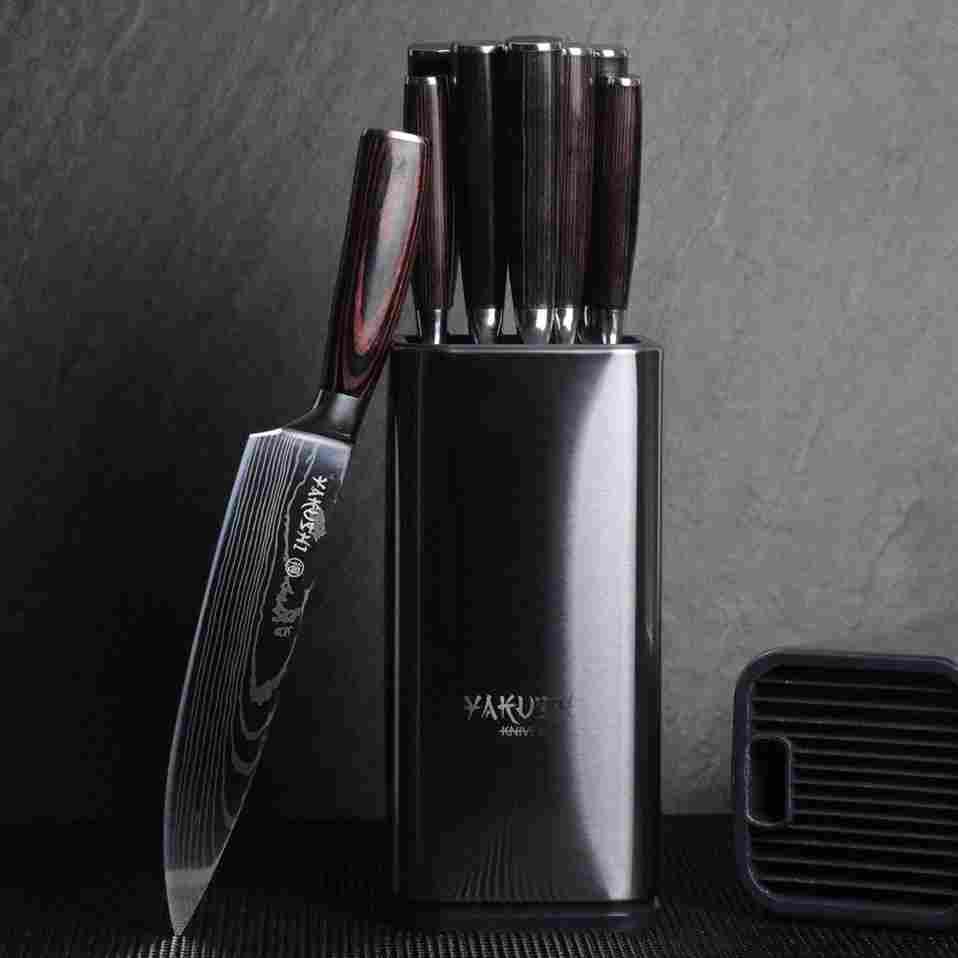Filters
8 products
Damascus Steel Kitchen Knives — Timeless Craftsmanship Meets Modern Kitchens

Discover the Beauty and Power of Damascus Steel in Your Kitchen
Welcome to our curated collection of Damascus steel kitchen knives — a fusion of ancient metallurgy, meticulous craftsmanship, and contemporary culinary performance. Each knife is crafted for chefs and home cooks who value precision, durability, and aesthetic elegance.
Whether preparing delicate sashimi, thin-slicing vegetables, or tackling dense meats — these knives elevate cooking from routine task to culinary expression.
What Is Damascus Steel — A Legacy of Strength & Artistry
-
The term Damascus steel originally described a legendary form of high-carbon crucible steel used for swords and blades, prized for its ability to combine hardness and flexibility in a single alloy.
-
Modern Damascus knives typically employ a pattern-welded (layered) steel technique: multiple layers of steel — often blending hard carbon steel and stainless or softer steel — are forge-welded, folded, and manipulated under heat to produce the distinctive “watered,” wavy pattern.
-
The result: a blade that combines the sharpness and edge retention of hard steel with resilience and shock absorption — while also delivering a unique, art-like finish to each knife.
Why Damascus Steel Kitchen Knives Stand Out
🔪 Exceptional Sharpness & Edge Retention
A well-crafted Damascus kitchen knife delivers a razor-sharp edge that can stay keen through prolonged slicing, chopping, and cutting tasks — minimizing how often you need to re-sharpen.
🧰 Durability, Strength & Balance
The layered structure of Damascus steel creates a balance between hardness and toughness — leading to durable blades that resist chipping or breaking under regular kitchen use.
Furthermore, many Damascus kitchen knives offer excellent balance and weight distribution — contributing to controlled, comfortable cutting through hours of food preparation.
🎨 Unique Aesthetic & Artisan Appeal
Each Damascus knife’s blade has a unique wave-like or “watered” pattern — no two are exactly alike. This makes every knife not only a functional tool, but also a piece of culinary craftsmanship and visual art.
🍽️ Versatility for All Kitchen Needs
From slicing vegetables and herbs to carving meat or filleting fish — Damascus kitchen knives perform superbly across a wide range of tasks, thanks to their sharpness, balance, and durability.
Common Types of Kitchen Knives in Damascus Style & Their Uses
| Knife Type | Best For | Why It Works |
|---|---|---|
| Chef’s Knife / Gyuto-style | General purpose slicing, chopping, dicing | Combines length, sharpness and balance — great for everyday prep from meat to vegetables |
| Santoku-style Knife | Vegetables, herbs, general kitchen prep | Lighter and easier to control, ideal for frequent chopping or fine cuts |
| Nakiri / Vegetable Knife | Veggies, thin slicing, julienne | Straight edge and wide profile enable clean cuts and preserve produce integrity |
| Specialty Blades (Slicing, Carving, Utility) | Meat slicing, filleting, detailed prep tasks | Blade geometry and Damascus sharpness give control and precision for fine cuts |
Use these categories to help customers quickly identify which Damascus knife suits their cooking style.
Care & Maintenance — Ensure Long Life & Peak Performance
To maintain your Damascus steel kitchen knives:
-
Always hand-wash with gentle soap and warm water; avoid dishwashers.
-
Dry immediately and thoroughly after washing to prevent corrosion (especially on high-carbon cores).
-
Sharpen with a quality whetstone, using a consistent angle to preserve the fine edge. Regular honing helps maintain performance.
-
Store blades properly — using a knife block, magnetic strip, or blade guard, rather than loose in a drawer. This protects the edge and preserves the Damascus pattern.
Why Choose Our Damascus Steel Kitchen Knives Collection
-
Authentically crafted Damascus blades — combining layered steel, proper forging techniques, and centuries-inspired craftsmanship for performance and beauty.
-
Wide selection of knife types — from versatile chef’s knives to specialty slicing, carving, and vegetable knives.
-
Balanced design for performance and comfort — sharp, well-tempered blades that feel at home in both professional and home kitchens.
-
Comprehensive guidance and support — with care instructions, sharpening tips, and content to help buyers choose confidently.
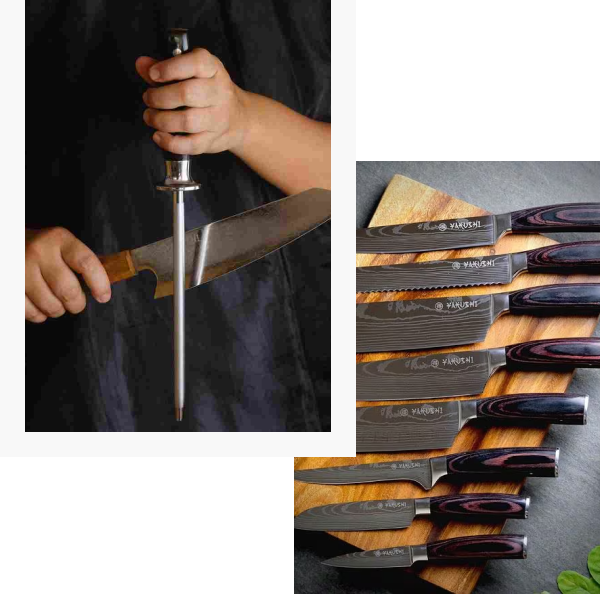
About the Knives
We are passionate craftsmen, dedicated to creating exceptional Japanese knives that embody beauty, function, and tradition. We use only the finest materials and employ conventional forging techniques to ensure that our knives are not only razor-sharp and durable but also a work of art.
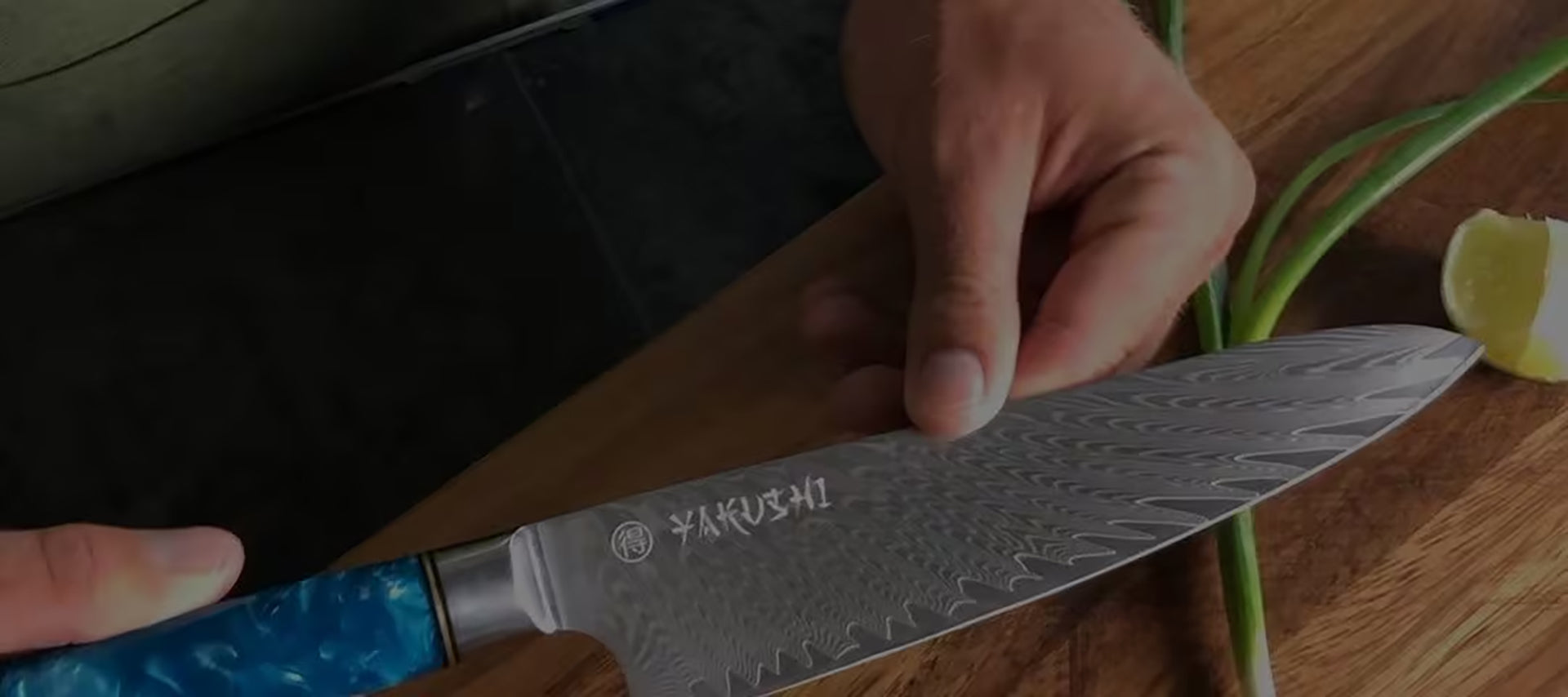
WATCH VIDEO
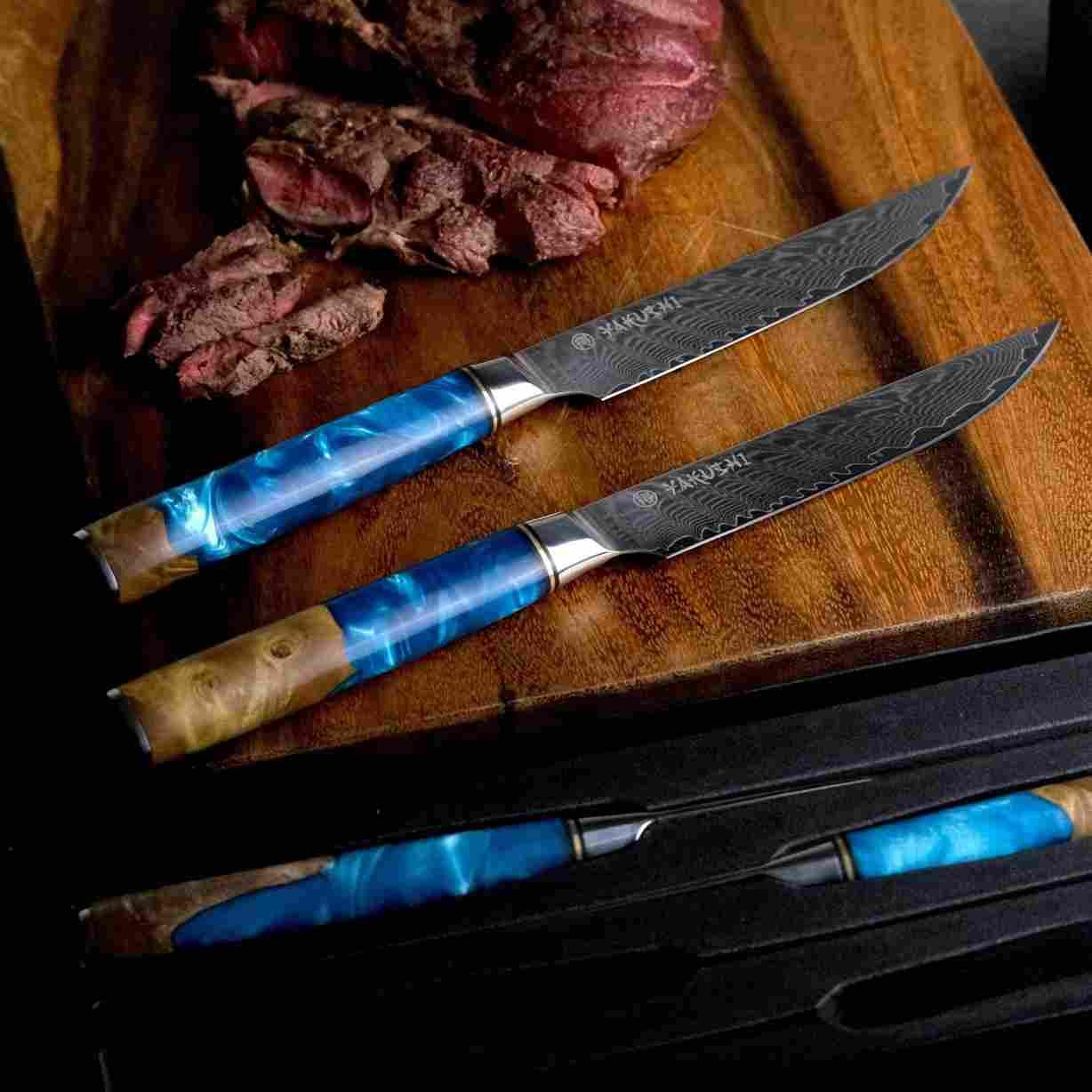
Yakushi™ Damascus Steel Chef Knife
A Classy Handcrafted Set, Not only for special occasions.
This Steak Knife Set includes four beautifully crafted knives, making it perfect for families or small dinner parties. The knives come in a stylish box, making it an excellent gift for any steak lover in your life.
I really like the traditional look. They have perfect balance and grip. Incredibly sharp as well!

The Knives are perfect and sharp! I love chopping vegetables with my family now!

I ordered the 5 Piece Set and it exceeds my expectations!


